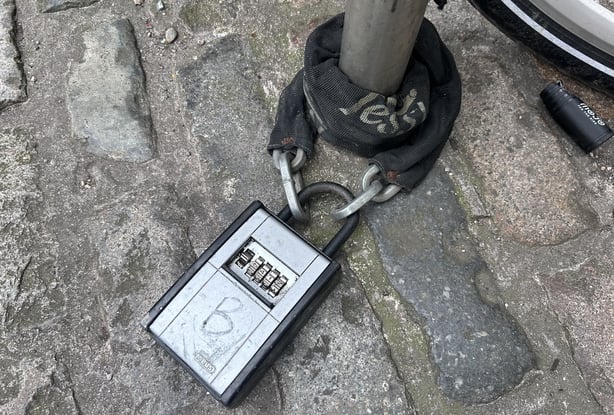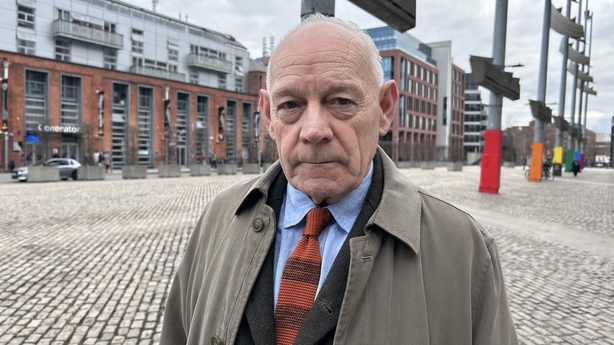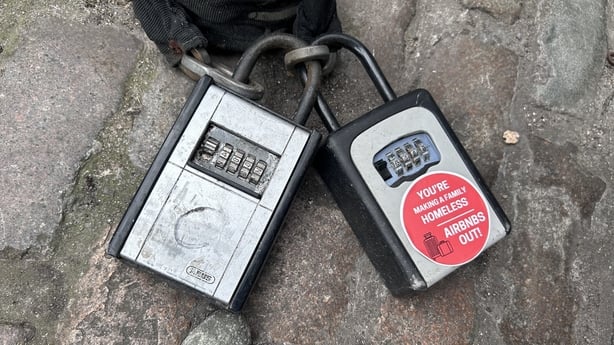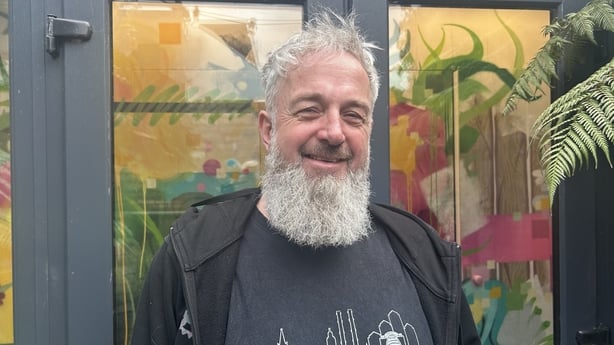Dublin City Council is to remove and destroy lockboxes which are being placed in public areas because the council said they pose a health and safety risk.
The council said it is giving six weeks' notice to owners of the boxes, which are generally used by those with short-term rental properties, before any action is taken.
The small metal boxes, with combination codes on the outside, have become a regular sight on the streets of Dublin city centre, particularly in areas popular for short-term lets.
The use of such boxes means property owners do not have to meet their guests in person.

The council said it has become increasingly common for lockboxes to be attached to objects in public places, such as poles and street signs or to be chained to bicycle stands.
It said they are a potential trip hazard and may cause public liability issues, if anyone is injured.
Independent Councillor Mannix Flynn welcomed the policy to remove and destroy lockboxes, saying that he believed they were being used by people who did not want the fact that they are letting their properties in the short-term to be detected.
Mr Flynn said: "In many cases landlords are using them illegally so they won't be detected and it's very difficult for the city council to identify where these premises are that are being used for Airbnb.
"It's aiding and abetting the homeless situation.
"I think if you're going to have an Airbinb and you're going to rent it out - well then that needs to be visible and transparent."

He said if the council is successful in its aim to remove and deter individuals from using "the premises unlawfully" then perhaps such premises "can be brought back into use as proper homes".
The councillor said he understands that some of the devices are being used for drug dealing.
"Individuals are using them to hide their drugs, to sell their drugs," he said.
"You make a call to the pusher, you go along, you press the combination and you get your drugs and you put your money in and somebody else comes along, takes the money out and then they're gone," he added.
He said he would prefer if there was no notice period and that the boxes were removed immediately.
However, Labour Councillor Dermot Lacey said he accepted the lead-in time and welcomed their removal, adding it has been called for over a number of years, and said the lockboxes are a "dirty, unsightly trip hazard".
Green Party Councillor Janet Horner said the boxes were a "daily reminder of the abuse of planning infrastructure" by some providing short-terms lets.
Dublin City Council's Head of Technical Services Brendan O’Brien said the removal would only apply to lockboxes that are in the public realm and not on private property.

He said the notice period of six weeks is to make sure that tourists, who use these lockboxes, are not suddenly stranded in Dublin city.
The council, he said, has engaged with Airbnb and other short-term letting agents but to date it has had "very little feedback" from them about the issue.
However, he said they had delivered a clear message that lockboxes will be removed from 14 April.
Removal of boxes 'a daft idea'
Paul Redmond, who rents a property on Airbnb, said he believes the removal of the devices from the public realm is "a daft idea".

Mr Redmond said he uses such boxes as they are "very handy", adding they are also "an easy target".
He said: "There's not so many of them, it's not as if the city is completely covered in them.
"For the Airbnb it's very convenient for the guests not to have to arrange to meet the hosts, people prefer the service of being able to arrive 24 hours a day and not be under pressure to meet the host."
Mr Redmond said he has "been all over world" and that the lockboxes are used "absolutely everywhere".
He added property owners often attach lockboxes to public places because it is more secure than placing them on the property.
"I have a house here and if I put a lockbox on the front of it everyone is going to know there's a key to my house in, but if I can put it just down the road somewhere nobody is going to know that," he said.
We need your consent to load this rte-player contentWe use rte-player to manage extra content that can set cookies on your device and collect data about your activity. Please review their details and accept them to load the content.Manage Preferences







